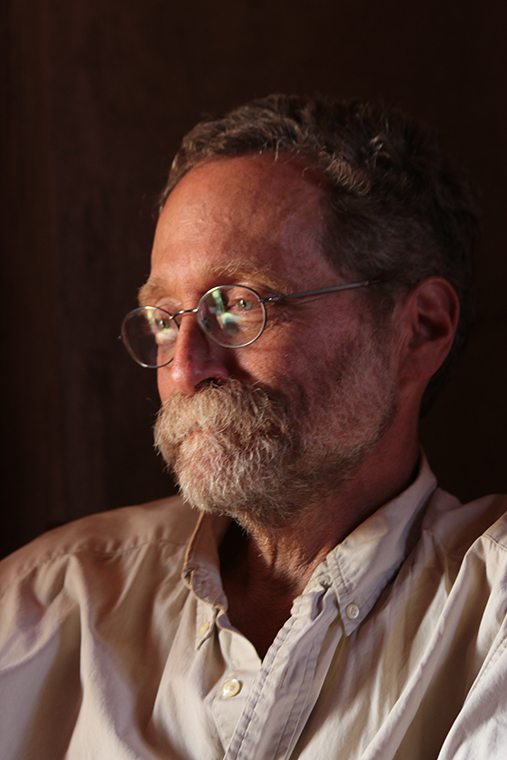
Stan Braude, a professor of practice in biology and in environmental studies in Arts & Sciences at Washington University in St. Louis, died at home Saturday, June 1, 2024, after a short illness. He was 62.
Braude earned his bachelor’s, master’s and doctoral degrees in biology at the University of Michigan, spending summers at the university’s Biological Station in northern Michigan. He worked in Kenya for more than 20 years, becoming a world expert on naked mole-rat ecology, evolution and behavior in the wild. He also worked in Argentina, Djibouti, Ethiopia, Tanzania and Uganda and locally in Missouri.
In addition to his naked mole-rat research, Braude published articles and textbook materials on many different topics in ecology, evolution and conservation biology over the years, including elephant behavior, rhinoceros inbreeding and the evolution of dogs, as well as his research on dragonflies, tuco-tucos, giant pouched rats and cave salamanders. Braude was also interested in human biology — publishing research on Barr Bodies, differential blood counts and the evolution of humor, for example — and proposed several theories on medically relevant topics including testosterone levels, inflammatory bowel disease and the oncoprotective fever hypothesis.
Braude began his teaching career at Washington University in 1992 as a lecturer in University College, now known as the School of Continuing & Professional Studies, and started teaching full time in the Department of Biology in 1997.
He taught classes in human anatomy and physiology; advanced wilderness medicine; Missouri’s natural heritage (an Ampersand program class); and the woody plants of Missouri, among others. When teaching about the biology of dog breeds, Braude brought his oversized dogs to campus to participate in classes.
Braude received multiple national awards for teaching, including the 2004 College Biology Teacher of the Year award from the National Association of Biology Teachers and the 2011 Distinguished Teacher Award from the Animal Behavior Society. Locally, Braude was honored with the Emerson Excellence in Teaching Award in 2022 and the Arts & Sciences Distinguished Teaching Award in 2019.
“Dr. Braude taught me to take ownership of how I act. He also showed me the importance of recognizing the impact of my actions in addition to my intentions,” Alison Leslie, a 2017 alum, told a writer who profiled Braude and his effectiveness in the classroom in 2019. “I truly believe that getting to know him through his courses has made me not only a better student but also a better person.”
“Stan was a consummate teacher,” said Ram Dixit, a professor and chair of biology. “He brought passion and creativity to the multitude of courses he taught in the biology department and in the University College program. His love of the outdoors and hands-on inquiry have had a lasting impact on many generations of students.”
Braude was an active participant and mentor for research projects sponsored by the Living Earth Collaborative, the Institute for Public Health and Tyson Research Center, WashU’s environmental field station. He was an animal trapper, fisherman, carpenter and gardener. He made his own camping gear and he foraged for wild edibles, a talent and skill that he taught to WashU undergraduates and younger scouts in the St. Louis area. Most recently, his knowledge of local foods led to collaborations with Bulrush restaurant and the university’s Buder Center for American Indian Studies.
“For the last eight or nine years, we’ve been tapping the maple trees on campus and then boiling down all that sap into syrup for a pancake breakfast,” Braude told the Humans of Tyson project in 2020. “I make a fire outside and boil the sap over it. The last couple of years, I would start at around 6 in the morning and invite people from the Pathfinder class around 11, when we would have the first batch of syrup ready.”
Certified as an EMT, wilderness medicine educator and arborist, Braude was the first curator of the Washington University arboretum, which attained Morton Arboretum Level II certification during his tenure. He initiated the love letters for trees event and continued the life of the oldest campus tree.
Braude had recently traveled to Cambridge, U.K., to trace the journey of Frederick Law Olmsted, the landscape architect who crafted the first plan for the WashU campus in 1895. With the support of a Newman Exploration Travel Award, he was seeking inspiration for the design of green spaces around the new Arts & Sciences building west of Olin Library.
Braude is survived by his wife, Nancy E. Berg, a professor of Hebrew language and literature in Arts & Sciences; children and extended family.
Services were held June 4. In lieu of flowers, the family requests donations to One Tree Planted, a local food pantry or a charity of your choice.